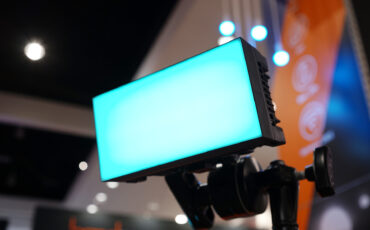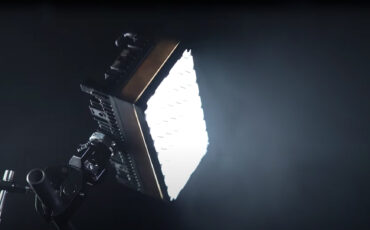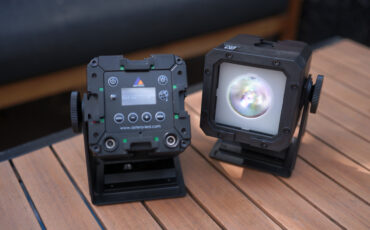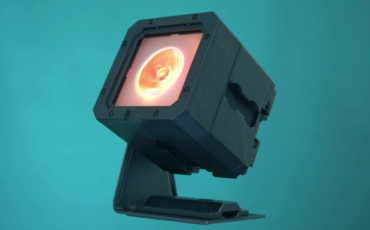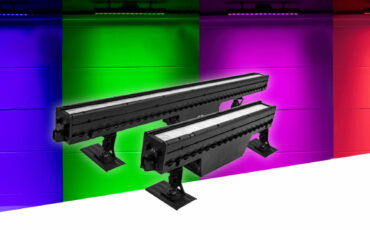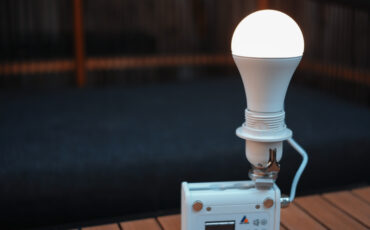Astera launches PlutoFresnel and LeoFresnel: LED lights with built-in battery
At Cine Gear 2023, we stopped by the Astera booth to learn more about their freshly-introduced PlutoFresnel and LeoFresnel fixtures. These hard lights feature a full-color RGBMA LED engine, are compatible with a forthcoming projection lens, and integrate an internal battery for easy operation in the field.
Lighting manufacturer Astera is mainly-known for producing high-quality tube lights, such as their AX1, Titan, Helios, and Hyperion fixtures. Moreover, in the last few years, their lineup expanded to include the NYX lightbulbs, the PixelBrick cube lights, and the tiny 25W HydraPanel.
Now, the company is ready to implement its Titan LED color engine into a new series of LED Fresnel lights. On the show floor at Cine Gear 2023, my colleague Graham stopped by the company’s booth where Thor Andre from Astera introduced him to the new PlutoFresnel and LeoFresnel fixtures. Let’s take a closer look!
Astera PlutoFresnel and LeoFresnel – overview
The Astera PlutoFresnel and LeoFresnel are respectively 80W and 250W LED Fresnel fixtures. At the heart of both lights is the company’s Titan RGBMA (Red/Green/Blue/Mint/Amber) LED color engine. This offers a wide color temperature range spanning from 1,750K up to 20,000K and 96+ TLCI/CRI Ra ratings. But most importantly, this makes it easy to mix and match Pluto and Leo with other existing Astera fixtures.
Lighting People – On Location
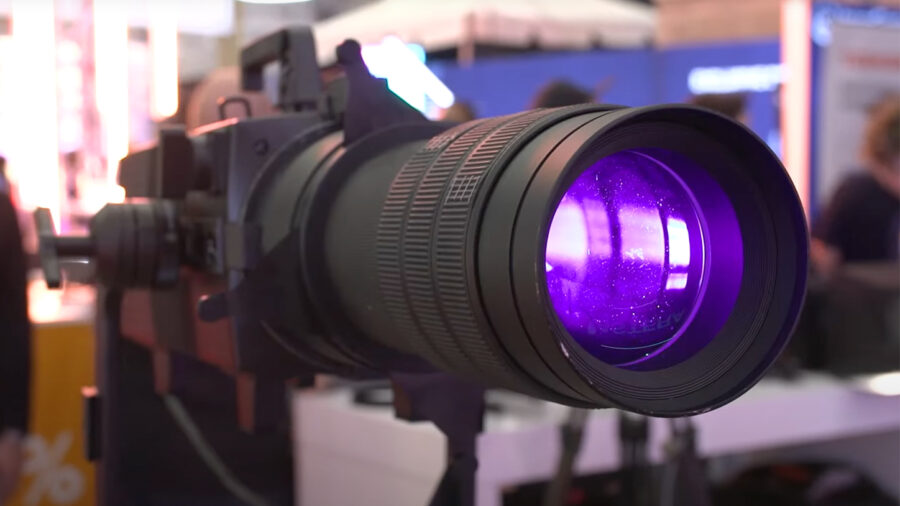
According to Thor, at 3,200K the output of Pluto is comparable to that of traditional 300W tungsten Fresnel lights, while Leo can compete with 1K tungsten models. The native beam angle is adjustable between 15 and 60° on both variants and the Fresnel lens is removable, so you can turn Pluto and Leo into open-face fixtures. An 8-leaf barndoor is included to help you shape the light source.
Additionally, a projection zoom lens attachment is in the works and should become available by the end of the year. It will offer a 16-36° zoom range, manual focus, 4 shutters, and compatibility with E-size Gobos for Pluto and B-size for Leo.
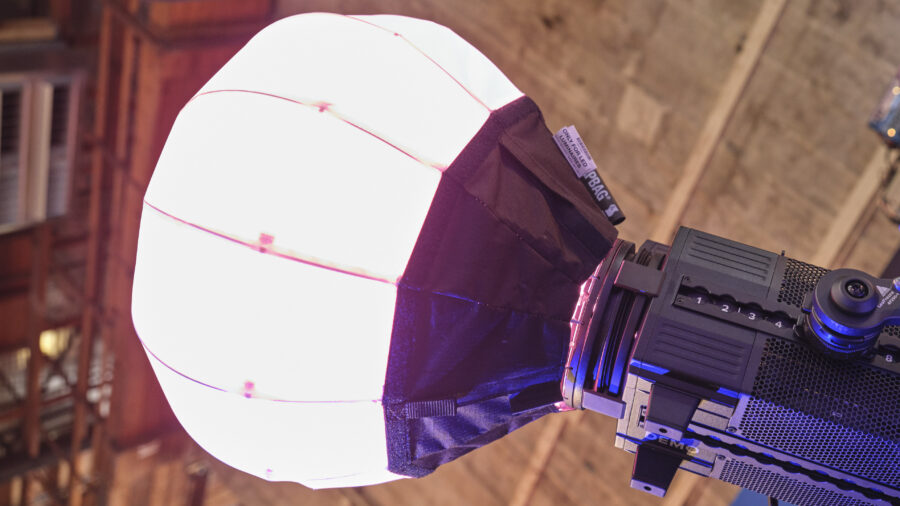
Power, design, and control
What sets Pluto and Leo apart from the competition is that these Fresnel lights integrate an internal battery. This should provide about 3 and 2 hours of operating time when running Pluto and Leo at full brightness.
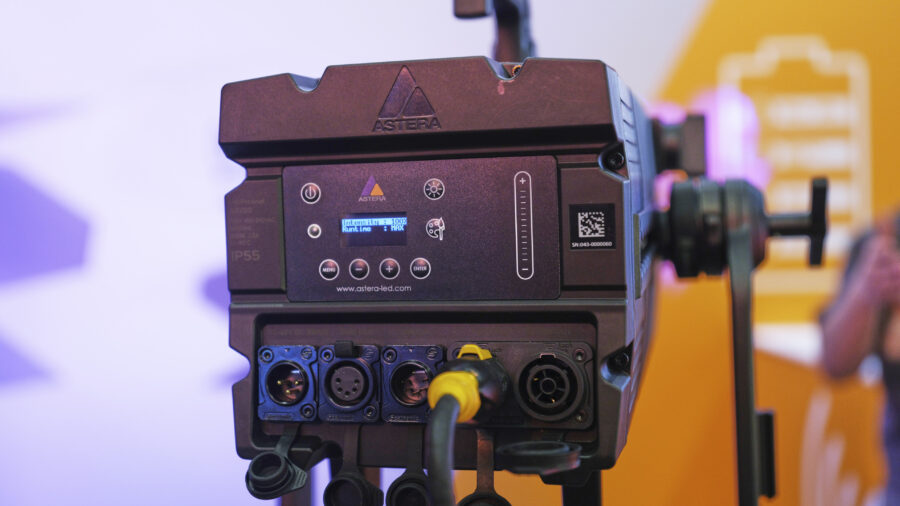
Furthermore, Pluto accepts battery power using the existing RuntimeExtender battery plate that comes in either V-mount or Gold mount options. On the other hand, Leo has a 3-pin XLR DC port (12-48V) but runs at reduced brightness when using an external power source that provides less than 24V.
All four sides of each light feature an Airline Track system that allows you to quickly adjust the position of the yoke. This should help to balance the lights, especially when using long modifiers, such as the upcoming projection lens.
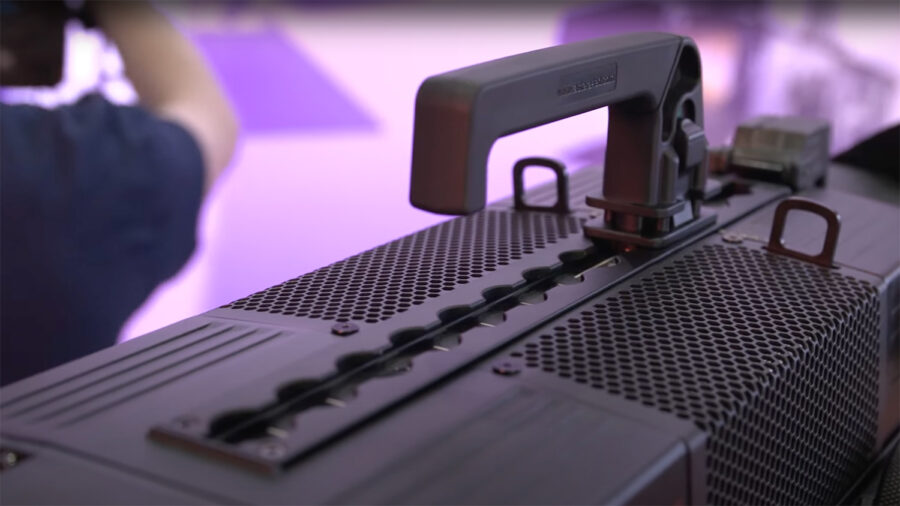
When it comes to controlling Pluto and Leo, you’re spoilt for choice. Indeed, both models have onboard controls, support wired and wireless DMX, and are compatible with the AsteraApp (iOS / Android).
Price and availability
The new Astera PlutoFresnel and LeoFresnel are going into production now and should start shipping towards the end of June. According to Thor, pricing should start around $1,700 for Pluto and $4,300 for Leo.
In the basic kit, you will find the light, Fresnel lens, 8-leaf barndoor, yoke, YokeBase, TVMP adapter, and handle. Additionally, Leo comes with a Rabbit Rounder adapter to ensure compatibility with DoPchoice modifiers.
The company also offers the PlutoFresnel and LeoFresnel hard case kits. The former includes two fixtures, while the latter is designed as a single-light kit.
Lastly, the company announced that a studio-oriented version of these lights should also become available by the end of 2023. They will feature a pole-operated yoke and zoom, but lack the internal battery.
For more information, please visit Astera’s website (PlutoFresnel / LeoFresnel).
What do you think of these new additions to the Astera family? Do you think having LED Fresnel lights with a built-in battery can have a positive impact on your work? Let us know your thoughts in the comment section below!



